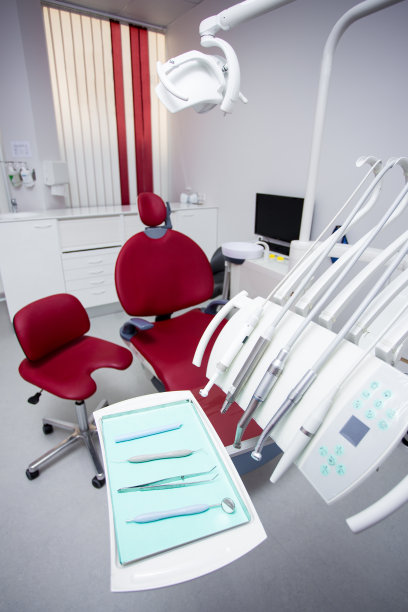Summary: Dental filling procedures are vital for restoring the functionality and aesthetics of teeth affected by cavities or decay. To ensure optimal oral health following such procedures, it’s essential to adopt specific precautions and care tips both before and after the treatment. This article outlines essential considerations regarding preparation, post-treatment care, dietary restrictions, and hygiene practices that can enhance recovery and maintain long-term oral health. By paying attention to these detailed aspects, patients can avoid complications and promote overall dental wellness.
1. Preparing for Dental Filling Procedures

Before undergoing a dental filling procedure, patients must be adequately prepared to ensure a smooth experience. First, its crucial to communicate openly with the dentist about any existing medical conditions or allergies. This information arms the dental professional with the knowledge needed to tailor the procedure to the patients specific health requirements and minimize risks.
Secondly, patients should ensure that they have a reliable means of transportation after the appointment. Dental fillings often involve anesthesia, making it unsafe for patients to drive themselves home. Therefore, arranging for a family member or friend to accompany you can provide peace of mind and safety.
Lastly, it’s recommended to avoid specific medications or substances that could increase bleeding or sensitivity prior to the procedure. Consult your dentist about medications to avoid, and make necessary adjustments to sharpen the focus on dental care.
2. Post-Treatment Care Instructions
After the filling procedure, adhering to post-treatment care instructions is crucial for recovery. Patients should allow the anesthetic to wear off completely before eating to prevent accidental biting of the cheek or tongue. Applying gentle pressure can also help in managing any discomfort following the procedure.
Its equally important to follow up with any prescribed medications, especially pain relievers or antibiotics, as directed by the dental professional. These medications play a vital role in minimizing discomfort and preventing infections that could compromise the integrity of the filling.
Furthermore, monitoring the filling for any irregularities after the procedure is advised. If patients experience heightened sensitivity, discomfort, or any unusual changes in the fillings appearance, they should contact their dentist immediately for an evaluation.
3. Recommended Dietary Restrictions
Diet plays a significant role in the healing and comfort after a dental filling. Following the procedure, patients should avoid hard, sticky, or chewy foods that could stress the newly filled area. Foods such as nuts, caramel, and hard candies should be off-limits to ensure the filling remains intact during the healing process.
Softer foods that are easy to chew further reduce the risk of discomfort and irritation to the sensitive area. Options such as yogurt, mashed potatoes, and smoothies can aid in recovery while providing essential nutrition.
Additionally, it’s wise to refrain from consuming extremely hot or cold foods and drinks immediately after treatment. Sensitivity following dental work can lead to discomfort with temperature extremes, making moderation essential until the filling area stabilizes.
4. Maintaining Proper Oral Hygiene
Ongoing oral hygiene is critical following a dental filling procedure. Patients should continue with their usual oral care regimen, but with a few adjustments. Brushing gently around the filled area can help prevent irritation while still maintaining cleanliness. Utilizing a soft-bristled toothbrush is recommended for this purpose.
Flossing is equally important to prevent debris from accumulating around the filling. Care should be taken to avoid snapping the floss directly on the filling, as this can compromise the integrity. Instead, gently guide the floss around the tooth to safeguard its condition.
Regular dental check-ups remain a crucial aspect of oral health after receiving fillings. Scheduled visits ensure that the dentist can monitor the filling’s condition and provide necessary maintenance or interventions to promote long-lasting dental health.
Summary:
In conclusion, being well-informed about the essential precautions and care tips for dental filling procedures is crucial for maintaining optimal oral health. From proper preparation and post-treatment care to dietary choices and oral hygiene practices, each step plays a fundamental role in ensuring the success of the treatment and longevity of the dental fillings.
This article is compiled by Vickong Dental and the content is for reference only.
Vickong Dental
Vickong Dental is a large medical group established in Hong Kong in 2008 by professors from well-known medical universities in Guangdong and Hong Kong, as well as medical doctors from key national '985' universities (including Master's supervisors and senior professors). The chain of branches brings together expert dentists with PhDs and Master's degrees from Hong Kong and Mainland China, committed to providing high-quality dental treatment.
"Vickong Dental Practices the University Motto of 'Healing and Serving Society,' with a Stable Operation for Sixteen Years. It Has Been honored with Hong Kong Enterprise Leaders's Choice,' and is a Global Trusted Implant Center for the Nobel Implant System. Recommended by Hong Kong Metro Broadcast and Guangdong Television, it Serves Customers from Over Thirty Countries and Regions, Gaining the Trust and Favor of Citizens from the Guangdong-Hong Kong-Macau Greater Bay Area and Surrounding Cities.

Thousands of customers' unanimous praise
The most recognized and highly recommended dental service by customers in the Guangdong-Hong Kong-Macau Greater Bay Area
We Ensure You Receive Detailed Care and Attention Here
Hong Kong standards, Shenzhen prices, Your Trusted English-speaking dentists

Vickong Dental Medical-Grade Instrument Disinfection Process
Vickong Dental Medical-Grade Instrument Disinfection Process

Vickong Dental Chain: A Warm and Comfortable Environment for Treatment






Appointment Hours

Q&A
Why choose Vickong Dental?
Vickong Dental practices the university motto 「Medicine to Benefit Society」, with each branch bringing together highly qualified dentists with doctoral and master’s degrees from Hong Kong and the Mainland, and has maintained seventeen years of steady operation。Recipient of 「2024 Hong Kong Enterprise Leaders Brand」, 「2025 Hong Kong Enterprise Leaders Brand」, a Nobel Biocare Global Trusted Implant Center, and a brand recommended by Metro Radio Hong Kong and Guangdong TV。
To date, we have served customers from more than thirty countries and regions,earning exceptionally high word-of-mouth recognition and trusted recommendations from residents across the Guangdong-Hong Kong-Macao Greater Bay Area and surrounding cities
We have eight major branches in Zhuhai、Shenzhen,and a consultation and service assurance center in Hong Kong,so you can book a free consultation at any time for any questions,which is very reassuring.
If I do not accept the quotation after the CT scan, will I be charged??
No! As long as the actual treatment has not started, you will not be charged any fees.
Will there be any additional charges during the treatment process?
No, there won’t be any additional charges. Before treatment begins, we will clearly explain the treatment plan and its corresponding fees. Only after the patient agrees and signs the consent form will we proceed with the dental service.
Can I pay in Hong Kong dollars?
Yes. Vickong Dental accepts payment in Hong Kong dollars. The amount will be converted based on the exchange rate of the day, and the applicable rate will be clearly communicated to you in advance.
Can I reschedule my appointment at any time?
Yes. Please contact us via **WeChat** or **WhatsApp** as early as possible, providing your original appointment time and details, along with your preferred new date and time slot for rescheduling.













